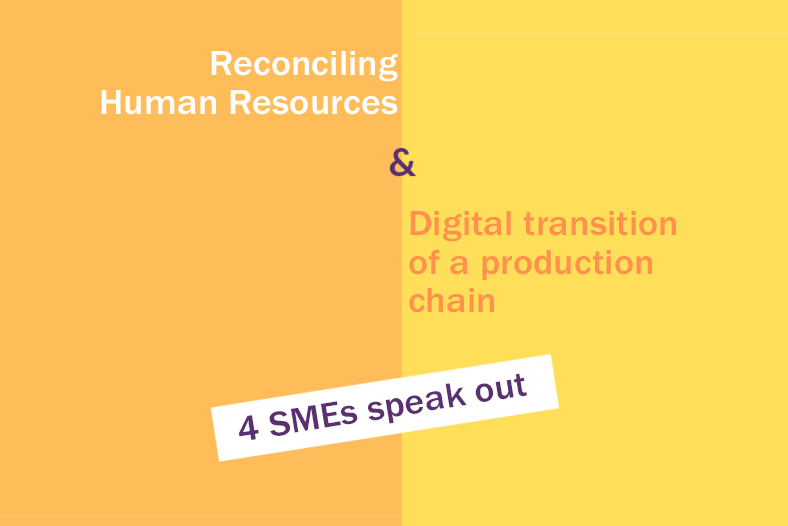Reconciling the digital transition and human resources: 4 manufacturers speak out

Robotize a production line, reorganize information flows, computerize the traceability of a manufacturing process, achieve the digital integration of support functions around Big Data… These are just some of the challenges facing industrial companies engaged in digital transformation, which have a direct impact on the day-to-day lives of their teams. Management, measuring working hours, creating jobs, transforming or eliminating others, changing skills… The digital transition is having unsuspected effects on human resources management. These effects have been identified at national level, and are at the heart of the Centre-Val-de-Loire region’s priorities for job quality.
Putting teams at the heart of the project
In 2016, this region’s DIRECCTE (Direction régionale des entreprises, de la concurrence, du travail et de l’emploi) offered SMEs located in its territory a collective support program, with one objective: to help them spread digital technology to their workshops and production lines. Four companies took part in the project: FARE and SEFI (fire detection), AFL Honeycomb Structures (manufacture of crash-test barriers), Avignon Ceramic (manufacture of ceramic cores). For each, the approach was to involve the field teams from the outset. Training in quality of working life, risk prevention and digital transition project management… Key people were interviewed. Thanks to contributions from operators, managers, team leaders and HR managers, a consultant commissioned by the AFNOR group identified and measured the psycho-social risk factors specific to each situation.
The foundations of a QWL dialogue
Questions and debates have often gone beyond the simple “digital” aspect to lay the foundations for a broader dialogue on quality of life at work, thanks to which companies have seized the opportunity to set up structured approaches. ” This experiment has demonstrated the added value of an approach combining group training, individual on-site support and the sharing of best practices,” sums up Stéphane Thomas, head of the economic change and skills development department at DIRECCTE Centre-Val-de-Loire.